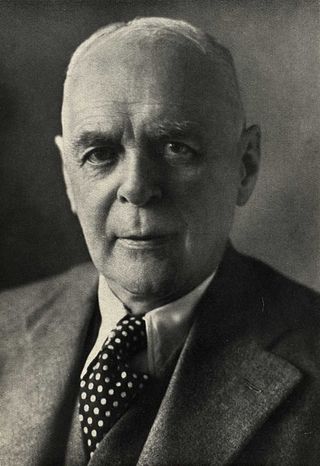Related Research Articles

Helmut Rix was a German linguist and professor of the Sprachwissenschaftliches Seminar of Albert-Ludwigs-Universität, Freiburg, Germany.

Wilhelm Kroll was a German classicist who was full professor at the universities of Greifswald (1899–1906), Münster (1906–1913) and Breslau (1913–1935).
Heinz Heimsoeth was a German historian of philosophy.

The Wissenschaftliche Buchgesellschaft (WBG) was a German publishing house in Darmstadt. With about 60,000 subscribers it was one of the largest book clubs in Germany.
Klaus-Michael Mallmann is a German historian at the University of Stuttgart.

The Free Workers' Union of Germany was an anarcho-syndicalist trade union in Germany. It stemmed from the Free Association of German Trade Unions (FDVG) which combined with the Ruhr region's Freie Arbeiter Union on September 15, 1919.
Wilhelm Levison was a German medievalist.

The Reichsuniversität Straßburg was founded in 1941 by the Nazis in Alsace after the annexation of Alsace-Lorraine by Nazi Germany. The University of Strasbourg had moved to Clermont-Ferrand in 1939. The university's purpose was to restore the German character of the Kaiser-Wilhelm-Universität, as the University of Strasbourg was named from 1872 to 1918, and to advance "German knowledge" in the annexed territory. When the Allies arrived in Alsace in 1944, the Reichsuniversität was first transferred to Tübingen and then dissolved.
Otto Huth was a German historian of religion and folklorist who was a member of the Ahnenerbe and held a professorial position at the Nazi Reichsuniversität Straßburg.
Walter Friedrich Gustav Hermann Otto was a German classical philologist particularly known for his work on the meaning and legacy of Greek religion and mythology, especially as represented in his seminal 1929 work The Homeric Gods.

Heiner Bielefeldt is a German philosopher, historian and Catholic theologian. He is Professor of Human Rights and Human Rights Policy at the University of Erlangen. From 2010 to 2016, he served as United Nations Special Rapporteur on Freedom of Religion or Belief.

Gustav Anrich was a German church historian from Alsace, who served as rector of both the University of Strasbourg and the University of Tübingen (1928–1929). He was a leading expert on the history of early Christianity and its relation to and influence by ancient mystery religions and the emergence of the cult of saints. He was also noted for his work on the history of the Reformation in Alsace. In his last years, he concerned himself with the history of the University of Strasbourg and Alsace more broadly, but he died before he could complete his work on the university's history.
Gerd R. Ueberschär is a German military historian who specialises in the history of Nazi Germany and World War II. He is one of the leading contributors to the series Germany and the Second World War and, together with Rolf-Dieter Müller, is the author of Hitler's War in the East 1941−1945: A Critical Assessment. Both works have been published in English translations.
Jürgen Matthäus is a German historian and head of the research department of the United States Holocaust Memorial Museum. He is an author and editor of multiple works on the history of World War II and the Holocaust. Matthäus was a contributor to Christopher Browning's 2004 work The Origins of the Final Solution.

Ewald Frie is a German historian and biographer at the University of Tübingen. His research interests include German history of the 18th, 19th and 20th centuries, European nobility, poverty and the welfare state, and Australian history.
Hugo Stintzing was a German university lecturer in physics at the Technische Hochschule Darmstadt. He was involved in early research on the electron scanning microscope, studied radioactive elements and developed a model for the periodic table. He was the Director of the Institute of X-Ray Physics and Technology at Darmstadt from 1936 to 1945. He was removed from his position due to his involvement in the National Socialist German Workers' Party, and was interned in 1946.

Kuno Heinrich Franziskus Maria Hubertus Reichsfreiherr und Edler Herr von und zu Eltz-Rübenach was a member of the Reichstag of Nazi Germany and a SS-Brigadeführer.
Stefan Breuer is a German sociologist who specializes in the writings of Max Weber and the German political right between 1871 and 1945.
Werner Hermann Georg Braun was a German musicologist.
Günther Binding is a German art historian and retired professor of art history and urban conservation at the University of Cologne.
References
- ↑ Who's who in Publishing, p. 7, 1965
- ↑ "Anrich, Ernst Archived 2015-04-02 at the Wayback Machine ," in Svensk uppslagsbok , second ed., 1947
- ↑ Verstaubt und vermodert, spiegel.de